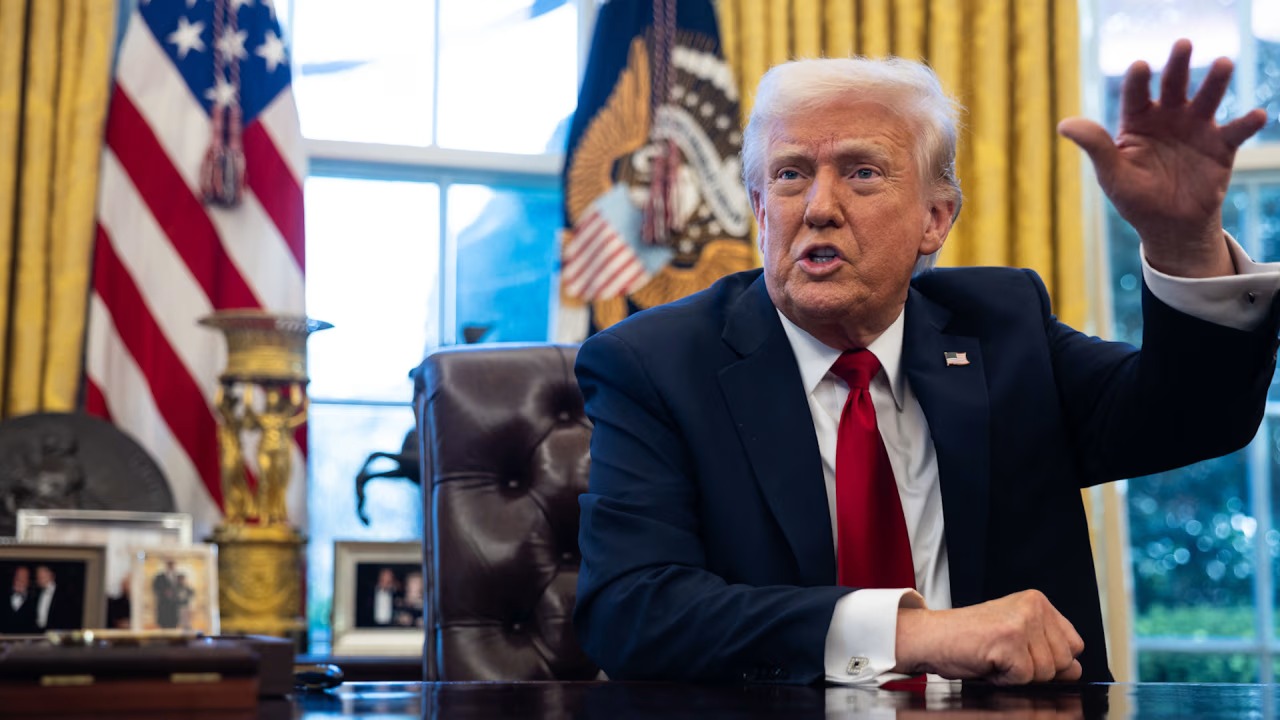In a move that has rattled global markets, former US President Donald Trump announced that the United States will impose new tariffs on Indian exports starting August 1. The announcement triggered an immediate reaction in financial instruments linked to Indian equities, with the iShares MSCI India ETF (INDA) falling 1.1% in premarket trading on July 30, 2025.
The tariff decision is part of a broader protectionist push aimed at recalibrating trade relationships with key partners. India, which had previously enjoyed relatively stable trade terms with the US, now faces a 25% increase in export costs to American markets.
Key Developments and Market Reaction:
- iShares MSCI India ETF (INDA) dropped 1.1% in premarket trading following Trump’s announcement
- Tariffs on Indian exports to the US set to rise by 25% starting August 1
- Broader Asian ETFs also declined, with South Korea and China ETFs down 1.5% and 1.8% respectively
- Investors brace for potential retaliatory measures from India and other affected nations
- Market volatility expected to rise as trade tensions escalate
Impact on Indian Equities and ETF Holdings:
- INDA, which tracks the MSCI India Index, includes major Indian companies such as HDFC Bank, Reliance Industries, ICICI Bank, and Infosys.
- These firms have significant exposure to global markets, and the tariff hike could dampen export-driven revenue streams.
- Financials, which make up nearly 30% of INDA’s portfolio, are particularly vulnerable to macroeconomic shocks and currency volatility.
- Technology and industrial sectors may also face headwinds due to increased costs and potential supply chain disruptions.
Global Trade Context and Retaliation Risks:
- The tariff announcement is part of a sweeping trade overhaul that includes increased duties on Vietnam, Japan, South Korea, and China.
- India’s odds of retaliating with its own tariffs rose to 35%, according to Kalshi’s prediction markets.
- European Union, South Korea, and Japan are expected to respond more aggressively, with retaliation probabilities exceeding 70%.
- The move could trigger a domino effect of protectionist policies, further straining global trade flows and investor sentiment.
Investor Sentiment and Strategic Outlook:
- Traders are shifting toward defensive assets and reducing exposure to emerging market ETFs amid rising uncertainty.
- The S&P 500 and Nasdaq posted modest gains, buoyed by strong earnings from Microsoft and Meta, but the broader mood remains cautious.
- Analysts warn that prolonged trade tensions could impact India’s GDP growth and foreign investment inflows.
- Investors are advised to monitor currency movements, central bank responses, and geopolitical developments closely.
Leadership Commentary and Political Undercurrents:
- Trump’s announcement is seen as a strategic move to bolster domestic manufacturing and appeal to protectionist voter bases ahead of the 2026 midterms.
- US Commerce Secretary Howard Lutnick attempted to downplay the backlash, stating that the tariffs would be applied uniformly and fairly.
- Indian officials have yet to issue a formal response, but diplomatic channels are reportedly active to assess the implications.
- The development adds a new layer of complexity to ongoing trade negotiations between India and the US, which had shown signs of progress earlier this year.
Conclusion:
The 1.1% drop in the iShares MSCI India ETF reflects immediate investor anxiety over Trump’s tariff announcement. As August 1 approaches, markets will be watching closely for India’s response and the broader ripple effects across global trade. With geopolitical tensions rising and economic uncertainty mounting, the next few weeks could prove pivotal for emerging market investors.
Sources: Passport to Wall Street, Investing.com India, MarketBeat, Seeking Alpha, Bloomberg TV
